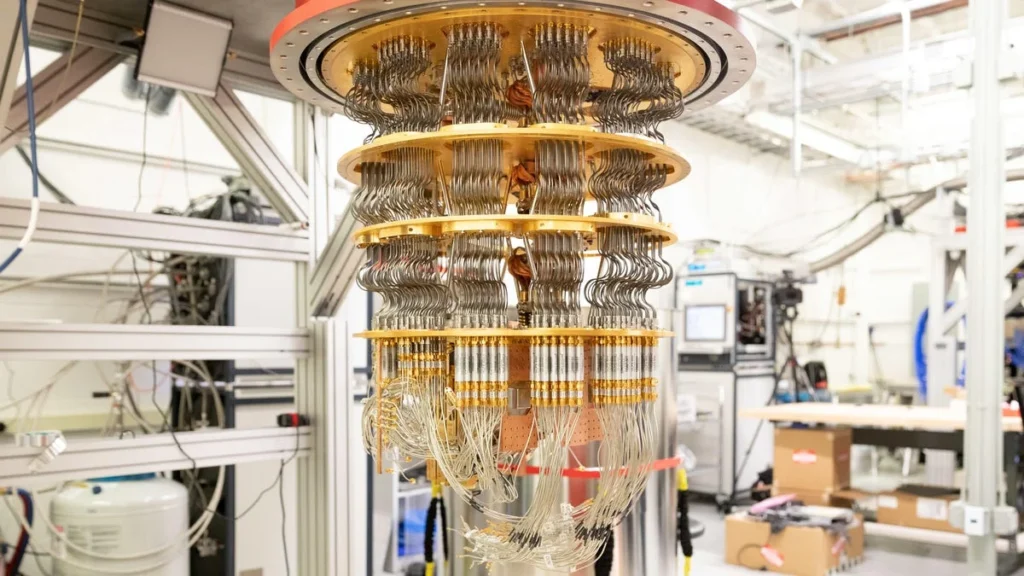Google has recently launched a new quantum computing platform for developers, marking a significant milestone in the field of quantum computing. This platform, called Cirq, is designed to allow developers to write code that can run on a quantum computer. With this new platform, developers can explore the potential of quantum computing and contribute to the development of quantum algorithms and applications. Google’s initiative aims to accelerate the progress of quantum computing and make it more accessible to the developer community, paving the way for exciting new possibilities in technology and science.
The arrival of Google’s new quantum computing platform has sparked curiosity and interest among developers and technology enthusiasts worldwide. This groundbreaking development has raised questions about the potential impact of quantum computing on various industries, the future of traditional computing, and the practical applications of quantum algorithms. Developers are eager to explore the capabilities of Cirq and delve into the world of quantum computing, as they envision its potential to revolutionize computational power and problem-solving. As the quantum computing landscape continues to evolve, Google’s platform is poised to play a pivotal role in shaping the future of technology.
What is Google’s new Quantum Computing Platform?
Google has launched a new quantum computing platform called “Cirq” which is an open-source framework that allows developers to create algorithms for quantum computers. Quantum computing is a revolutionary field that uses the principles of quantum mechanics to process and store information in ways that traditional computers cannot. Google’s new platform aims to make it easier for developers to work with quantum computing and explore its potential applications.
Cirq provides tools for writing, manipulating, and optimizing quantum circuits, as well as running them against quantum computers and simulators. It also offers a visualizer to help developers understand and debug their quantum circuits. With this platform, Google is making quantum computing more accessible to developers and researchers, and paving the way for new breakthroughs in the field.
How does Google’s Quantum Computing Platform work?
Google’s Quantum Computing Platform, Cirq, works by allowing developers to define quantum circuits and algorithms using Python. These circuits can then be optimized and run on quantum computers or simulators. The platform provides tools for creating and manipulating qubits, which are the basic units of quantum information, and for performing quantum operations on these qubits.
Developers can use Cirq to explore quantum algorithms and experiment with quantum computing concepts. The platform also integrates with Google’s quantum hardware and allows developers to run their quantum circuits on real quantum processors. This gives developers the opportunity to gain hands-on experience with quantum computing and contribute to the advancement of the field.
Benefits of Google’s Quantum Computing Platform for Developers
Google’s Quantum Computing Platform, Cirq, offers several benefits for developers. Firstly, it provides an open-source framework that allows developers to freely access and contribute to the development of quantum computing algorithms and tools. This fosters collaboration and innovation within the quantum computing community.
Additionally, Cirq simplifies the process of creating and running quantum circuits, making it more accessible to developers who are new to the field of quantum computing. The platform also provides resources and documentation to help developers learn about quantum computing and experiment with quantum algorithms. Overall, Cirq empowers developers to explore the potential of quantum computing and contribute to its growth and development.
Potential Applications of Google’s Quantum Computing Platform
Google’s Quantum Computing Platform, Cirq, has the potential to impact a wide range of industries and fields. One potential application is in the field of cryptography, where quantum computers could potentially break current encryption methods and require the development of new quantum-resistant algorithms.
Quantum computing also has the potential to revolutionize fields such as drug discovery, materials science, and optimization problems by solving complex calculations and simulations much faster than traditional computers. Additionally, quantum computing could lead to advancements in artificial intelligence and machine learning by enabling the processing of larger and more complex datasets.
Challenges in Quantum Computing Development
While Google’s Quantum Computing Platform, Cirq, represents a significant advancement in the field of quantum computing, there are still several challenges that need to be addressed. One challenge is the development of error correction methods for quantum computers, as quantum systems are susceptible to noise and errors that can affect the accuracy of calculations.
Another challenge is the scalability of quantum hardware, as current quantum processors have a limited number of qubits and are not yet capable of solving large-scale problems. Additionally, there is a need for more research and development in quantum algorithms and software to fully harness the potential of quantum computing.
Future of Quantum Computing and Google’s Role
The future of quantum computing holds great promise for solving some of the most complex problems in science, technology, and industry. Google’s Quantum Computing Platform, Cirq, is poised to play a significant role in advancing the field by providing a platform for developers to explore and innovate in the realm of quantum computing.
As quantum computing technology continues to mature, Google is likely to play a pivotal role in driving its development and adoption. The company’s expertise in quantum hardware, software, and algorithms positions it as a key player in shaping the future of quantum computing and unlocking its potential for the benefit of society.
Accessibility and Education in Quantum Computing
Google’s Quantum Computing Platform, Cirq, has the potential to make quantum computing more accessible to a wider audience, including students, researchers, and developers. The open-source nature of the platform allows for collaboration and knowledge sharing within the quantum computing community.
Furthermore, Google’s investment in educational resources and documentation for Cirq can help educate and train the next generation of quantum computing experts. By providing tools and learning materials, Google is contributing to the growth of quantum computing knowledge and expertise worldwide.
Ethical Implications of Quantum Computing
As quantum computing continues to advance, there are ethical considerations that need to be addressed. The potential for quantum computers to break current encryption methods raises concerns about data security and privacy. There is a need for ethical guidelines and regulations to ensure the responsible development and use of quantum computing technology.
Additionally, the potential societal impacts of quantum computing, such as job displacement due to automation and the unequal access to quantum technology, should be taken into consideration. Google and other stakeholders in the quantum computing field have a responsibility to address these ethical implications and ensure that quantum computing is developed and used in a way that benefits society as a whole.
| Platform Name | Features | Availability |
|---|---|---|
| Quantum Computing Platform | – Quantum processor and compiler – Quantum algorithm libraries – Quantum applications |
Available for developers |
Google has launched a new Quantum Computing Platform for developers, which includes a quantum processor and compiler, quantum algorithm libraries, and quantum applications. The platform is now available for developers to explore and utilize for their quantum computing needs.



